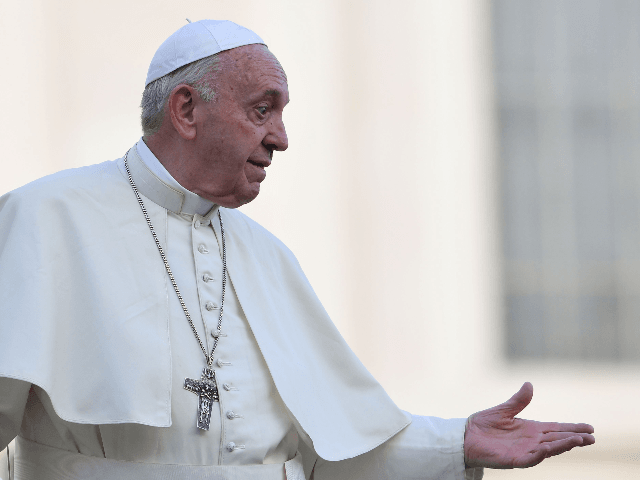ROME — Pope Francis will call for “the total elimination of nuclear weapons” when he visits Hiroshima and Nagasaki later this month, according to the Vatican’s Secretary of State, Cardinal Pietro Parolin.
During his six-day Asia visit, Pope Francis will deliver his message at the “hypocenter” park in Nagasaki and will hold a meeting for peace that same day at the peace memorial in Hiroshima, the U.S.-based Catholic News Service reported Thursday.
When the pope visits Japan, “he will not fail to make the strongest appeal possible for concerted steps toward the total elimination of nuclear weapons,” Cardinal Parolin said.
Already in 2017, Pope Francis urged all national, international, and civic organizations to work “with determination” to strive for a world without nuclear weapons.
“An ethics and a law based on the threat of mutual destruction – and possibly the destruction of all mankind – are contradictory to the very spirit of the United Nations,” the pope stated in a written message to the United Nations. “We must therefore commit ourselves to a world without nuclear weapons, by fully implementing the Non-Proliferation Treaty, both in letter and spirit.”
The following year, Francis went further still, saying that the only way to guarantee world peace is to “ban all weapons.”
The existence of weapons leads humanity to live “in fear of war,” the pope declared, and the only way to remove this fear is to eliminate all weapons.
While the Catholic Church has often criticized the arms race and the build-up of nuclear arsenals, this was the first time a pope has actually called for the banning of all weapons.
On another occasion, the pope distributed anti-war postcards featuring the photo of a Japanese boy and his brother after the 1945 U.S. bombing of Nagasaki, with his personal message: “the fruit of war.”
The photo on the card, which Francis had printed during the first days of January, portays a boy carrying his dead brother strapped to his back while waiting in line at a crematorium. On the back of the card are the words “the fruit of war,” together with the Pope’s signature “Franciscus.”
“So it is necessary to destroy the weapons, let’s strive for nuclear disarmament,” he told journalists.
At the time, a number of people took issue with the pope’s singling out the United States when speaking of the fruit of war, rather than circulating photos of, say, Stalin’s Gulag or Hitler’s concentration camps.
“Maybe a few pictures of the carnage which caused Nagasaki would balance opinion a bit better!!” one person commented, while another similarly called for a more balanced approach.
“How about pictures of Pearl Harbor AFTER the Japanese attacked? Or, pictures of the US soldiers tortured and executed by these same Japanese?” he said.
The atomic bomb was dropped on Aug. 9, 1945, in the closing days of World War II, three days after the U.S. atomic bombing of Hiroshima.
The United States entered World War II after surprise Japanese attacks destroyed the U.S. fleet at Pearl Harbor on December 7, 1941, killing 2,043 Americans and wiping out 188 U.S. aircraft.

COMMENTS
Please let us know if you're having issues with commenting.